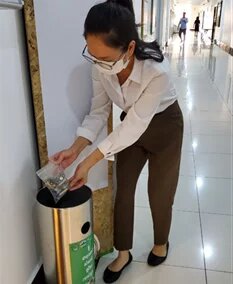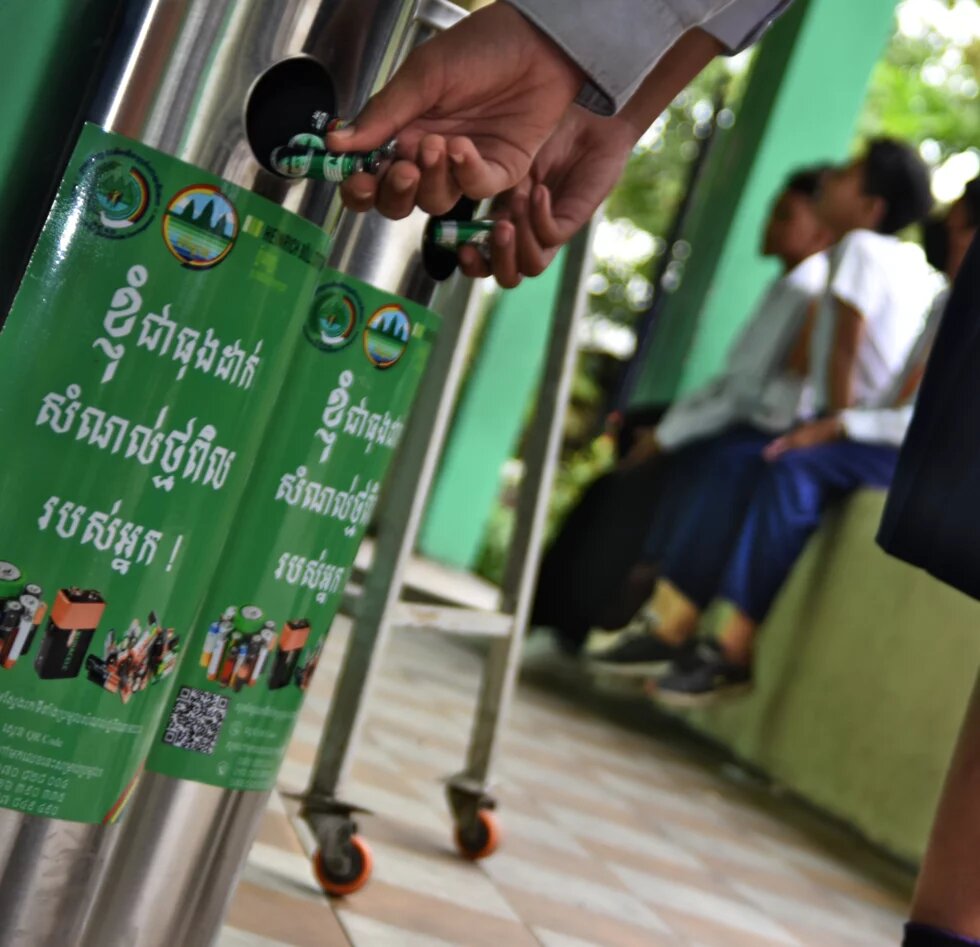
As awareness about food and plastics waste percolates among Cambodian communities, there is still a lot to be done about electronic and other hazardous waste. A growing consumer economy and the affordability of products has increased the number of appliances and electronics in our homes — made worse by the rapid cycles of updates and new products on offer.

It is not unusual to change a mobile phone or laptop every few years. But these appliances contain components, parts and batteries that if left in the environment can cause severe damage to the soil and water if left untreated. Also, batteries using lithium-ion are non-renewable and mining of the mineral expends a lot of water and energy.
The Ministry of Environment has acknowledged this threat and is working with the private sector to collect battery waste that is normally disposed of with regular trash untreated. This includes installing bins in public spaces to collect waste or old batteries that are shipped overseas to be processed.
Nop Sokhai works in research and policy development within the Department of Green Economy at the Ministry of Environment. He estimates only 10% of all batteries are collected after use — the rest sadly make their way to landfill or water sources and land.
Sokhai was able to sample some information about people’s habits by talking to school students in Phnom Penh. The children provided insights into the habits of their families: most people mixed battery waste with regular trash and families did not know what batteries were made of or how it impacted the environment.
“Students can have a good impact by spreading messages and telling their parents when they learn something new, like how to separate waste from general waste and how to deal with toxic waste,” Sokhai says.
While the education of students and families was important, Sokhai says it was maybe time to rethink the import of low-quality, battery operated electronics. “But even better, shouldn't we ban or increase taxes on products that are cheap but where the battery runs out fast? Or try to focus on rechargeable batteries even though they are expensive? Or further increase awareness of people and collection to avoid potential environmental impacts in the future?”
The key, according to Sokhai, is to create an ecosystem that works on ensuring battery and toxic waste is collected and processed. He points to the products that reduce the use of plastic items and the informal system of waste pickers — which works independent of state policy — who collect recyclable waste.
“We need to provide alternative solutions for people to do better.”
This article is an excerpt from "Profiles of Courage." Click here for the full reading.